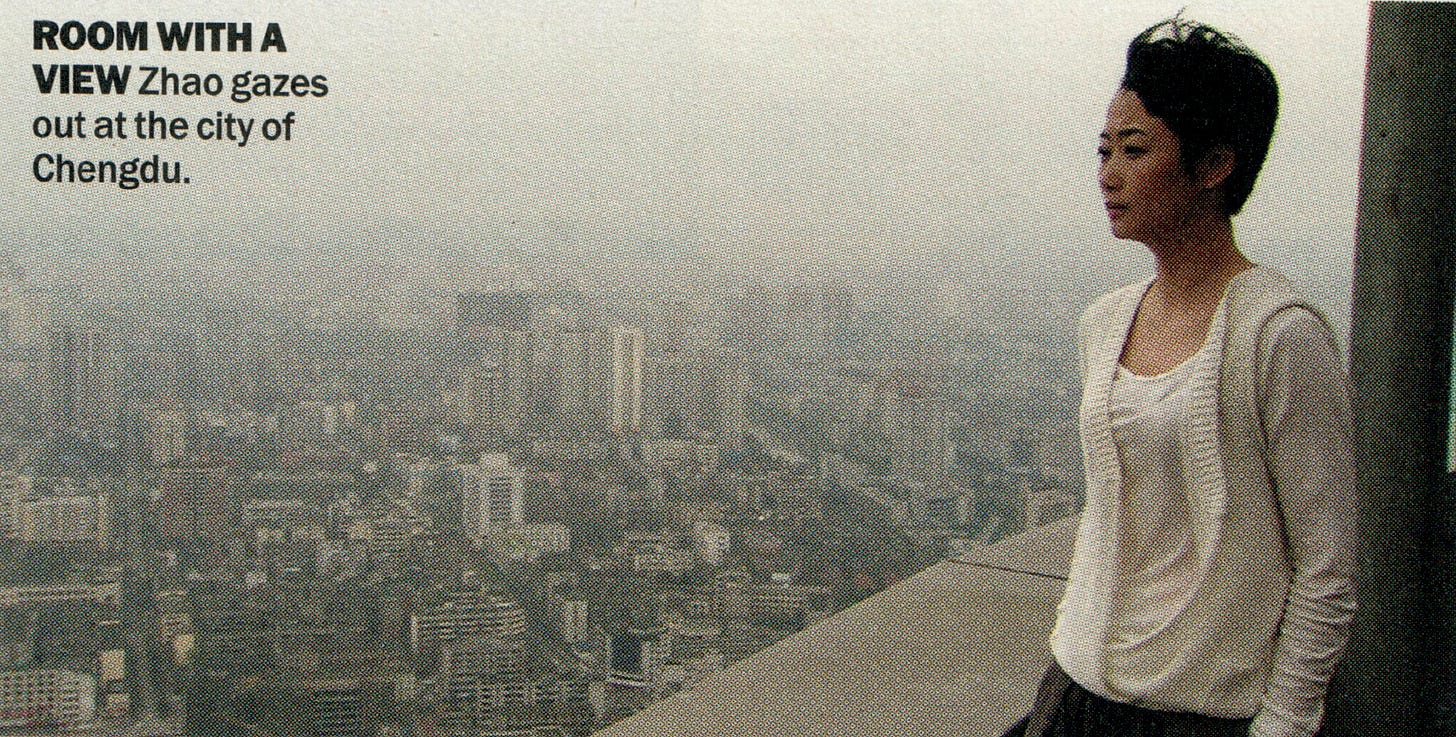★★★★☆☆
Dir. Jia Zhangke. 2008. N/R. 112mins. Joan Chen, Liping Lū, Zhao Tao.
There is no image as directly strange and elating in writer-director Jia Zhangke’s 24 City as the apartment-building rocketship from his 2006 feature, Still Life. This is a more subtle and insinuating piece of work, one whose effectiveness—especially for those of us with only a cursory understanding of Chinese arts, history and politics—hinges on advance knowledge that it is an intentional blend of fiction and documentary.
Set in Sichuan province’s capital city of Chengdu, the film takes its title from the luxury residence complex being built over and around a former munitions plant (Factory 420). Jia alternates between languorous shots of the factory in its final days and extended talking-head interviews with former workers and their families, though it’s never acknowledged in the movie proper that three of these accounts are invented monologues performed by actresses.
It’s likely that a Chinese audience will be immediately hip to the film’s aesthetic, which calls to mind Iranian director Abbas Kiarostami’s similar experiments with the medium, especially his school-system “documentaries” First Graders and Homework. For Westerners, 24 City is more likely to play as a frequently frustrating and oblique experience, though that’s not meant as dissuasion.
Jia is one of the guiding lights of the sixth generation of Chinese filmmakers, and 24 City is a potent exploration of his constant theme—the tectonic shifts that occur as the old gives way to the new. This sense of near-apocalyptic physical movement is as apparent in the billowing dust cloud of a demolished Factory 420 structure as it is in the meta-reminiscence of Gu Minhua (Chen), who recalls how her co-workers would often liken her to the heroine of the Cultural Revolution classic, The Little Flower.—Keith Uhlich



